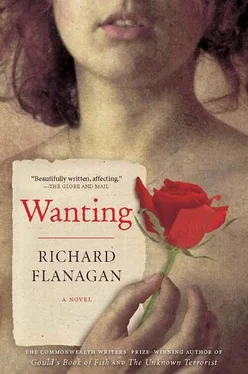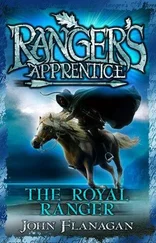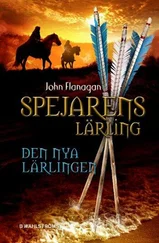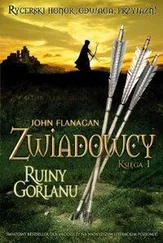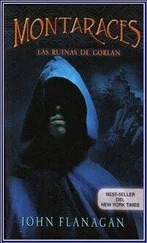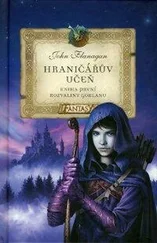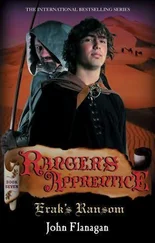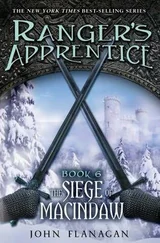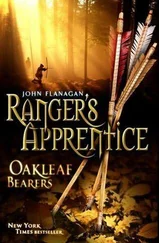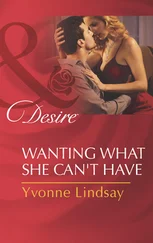‘But this,’ said Lady Jane finally, ‘is not a possibility. This is unbearable.’
It was astonishing.
‘ From the mutilated state of many of the bodies and the contents of the kettles ,’ Dickens read a second time, admiring the marvellous detail of the kettles, ‘ it is evident that our wretched Countrymen had been driven to the last dread alternative—cannibalism—as a means of prolonging existence .’
‘It is a lie,’ said Lady Jane. ‘A nonsense. And its sensational airing is an insult to the memory of these greatest of Englishmen.’
Handing the newspaper back, Dickens studied her face closely.
‘If my husband has perished, he has none but me left to save his honour from such slander. If he is alive, then how is it possible to ask either the great or the many for further help to find him if Dr Rae’s view prevails?’
And now, for the first time, Dickens understood that her sole purpose was to seek his help in damning Dr Rae and his account. Lady Jane wanted him to put an end to these dreadful rumours of Sir John eating his fellows. Well, thought Dickens as he continued to listen solemnly, he would have to eat something to maintain that enormous bulk of his.
‘You see, Mr Dickens, the question that arises?’
‘I do see, Lady Jane.’
And he did. This famous woman wanted his help. He, who had known such shame as the son of a man imprisoned for debt; he, a one-time bootblack labeller, a scribbler and chancer got lucky. He had made of himself something, indeed everything; and here, in Lady Jane’s every word, he had undeniable proof of it: a celebrated Lady of the Realm wanting from him what even the powerful did not seem to possess. He, the debtor’s son, was now to be the creditor.
‘Can such testimony be trusted?’ she asked.
‘Can rat cunning ever be called truthful witness?’
‘Indeed,’ said Lady Jane, momentarily startled. ‘That’s precisely it.’ She halted, lost in some distant, elusive thought, then spoke as if reciting something learnt long ago by painful rote. ‘ Rats , we know, have cunning,’ she said slowly, ‘but we do not think such cunning equates with humanity or civilisation. While they are rewarded, they pretend to one thing. Yet they are capable of the grossest deceit of…’
Lady Jane was falling into some unexpectedly deep feeling that for a moment made her stammer. Mistaking this as grief for her husband, Dickens was touched by what was clearly a more genuine emotion than she had hitherto shown. He had found something unearthly, even ridiculous, in her triumphant rendering of her husband. Part of him despised such nonsense. But another part of him wanted to share in it, to shore up its leaking holes, to buttress and burnish this improbable story of English greatness and English goodness.
‘I did what I…’ she began, but then for an instant she thought somebody, something was tugging at her skirts. She twisted around in her seat, expecting to see a small girl in a red dress. But there was no one. A friend had written some years before from Van Diemen’s Land telling her what had become of Mathinna.
Lady Jane longed to stand up, run away; wished for someone, anyone, to wash and soothe her, comfort her. She wished to be held. She wished to feel her dress being tugged. She saw red garments unloose parrots, possums, snakes. When she was young, she had wanted to be known as sweet. She was not sweet. She had fallen such a long way. She remembered the softness of those dark eyes; the sight that once had angered her and now moved her so, of those bare feet.
‘Their destiny,’ her correspondent had concluded, ‘can only be interrupted by kindness, but never altered by it.’
I am so alone, she thought. Those bare, black feet. She had burnt the letter and then done something uncharacteristic. She had cried.
She looked up. Her head steadied her reckless heart which had once, long ago, caused her such trouble. Though she feared the great novelist might find her aged and vile, she wanted her words to accord with common sense.
‘I have had experience of such people,’ said Lady Jane finally, and her voice oddly hardened. ‘Not the Esquimaux, but similar savages. The Van Diemonians—’
‘Cannibals?’ Dickens interrupted.
Lady Jane remembered her last sight of the bedraggled child, alone in the muddy squalor of that courtyard. She felt gripped by pain, as if in a terrible retribution she only dimly apprehended, as though it were a vengeance that might consume her completely as the ice had her husband. She forced herself once more to smile.
‘Your husband,’ said Dickens. ‘I cannot begin to compass your terrible—’
‘No,’ she said. ‘Not that I…’ She paused. She thought she smelt damp sandstone. ‘It is difficult,’ she went on—but what was she saying? Still she went on, trying to fashion belief and certainty out of words that felt comfortable. ‘It is impossible to form an estimate of the character of any race of savages from the way they defer to the white man when he is strong.’
‘I beg to say,’ said Dickens, smiling, ‘that I have not the least belief in the noble savage.’
‘Of course, such things are not unknown, even to white men. After all, in Van Diemen’s Land there were cases of escaping convicts taking vile resort in eating each other. But they were men devoid of religion, a hundred times worse than the most barbarous heathens because they had turned away. You see, Mr Dickens, the distance between savagery and civilisation is—’
But had she not said such things before? Something seemed wrong—with her reasoning, or her memory, or how she had once behaved. Just when she felt uncharacteristically faint and lost, Dickens rescued her.
‘The distance, Ma’am, is the extent we advance from desire to reason.’ He would not tell her his whole life was an object lesson in control of one’s passions; that it was what had led him to sit there with her that very day.
‘I do not entirely agree with those that say it is a matter of science,’ said Lady Jane. ‘Rather it is an affair of the spirit.’
She stood up and went to a display cabinet, from which she took a wooden box. Sitting it on the mahogany guéridon between her and Dickens, she raised the lid. Inside, cushioned by red felt, were a few folded letters and a yellowing skull.
‘It is a king of the Van Diemonian savages, Mr Dickens. I have shown it to several professors and men learned in phrenology. To test them, I did not say who it once was. Some found irrefutable signs in the skull’s shape of degeneracy, others of nobility. It appears it is both.’
‘The convict, the Esquimau, the savage: all are enslaved not by the bone around their brain,’ said Dickens, reaching across and closing the lid, ‘but by their passions.’ He raised his hand with a flourish, as he did when performing. ‘A man like Sir John is liberated from such by his civilised and Christian spirit.’
‘Exactly,’ said Lady Jane.
‘As for the noble savage, I call him an enormous nuisance and I don’t care what he calls me. It is all one to me whether he boils his brother in a kettle or dresses as a seal. He can yield to whatever passion he wishes, but for that very reason, he is a savage—a bloodthirsty wild animal whose principal amusement comes from stories at best ridiculous and at worst lies.’
‘Lies, you say, Mr Dickens?’
‘I do say, Lady Jane. Terrible, wretched, disgusting, mirroring lies. Here we have a race of thieving, murdering cannibals asserting that England’s finest were transformed into thieving, murdering cannibals—what remarkable coincidence!’
‘They had evidence, Mr Dickens,’ said Lady Jane.
‘Murderous thieves produce damning evidence of murderous thievery—and what do we do?’ said Dickens, picking up The Illustrated London News . He waved it as a parliamentarian would a deficient bill, his triumphant smile perfectly judged. ‘Broadcast their story of innocence, that’s what!’
Читать дальше
